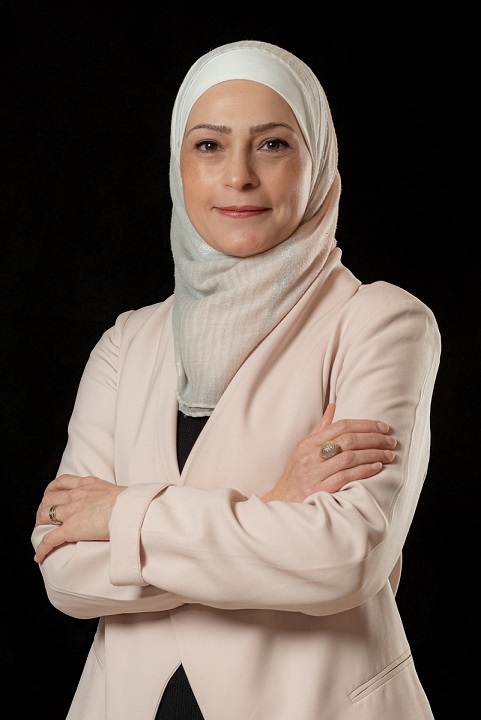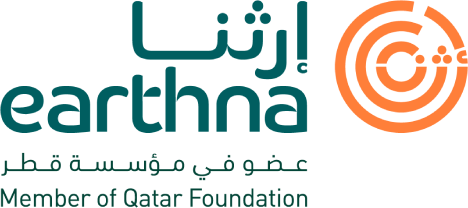
For Muslims, the verses of the Holy Quran hold a wealth of meanings, and scholars are continually seeking to reveal these. Some verses hold a latent meaning that inspires followers to rethink nature and creation. In many verses in the Quran, there is an assurance to readers that all Earthly sustenance is created and protected by God which He brings forth in precise quantities. The water cycle – an example of His Earthly treasures – is a product of God’s wisdom and mercy put forth to sustain life.
From a sustainability perspective, God created the Earth in cycles (circularity), and nothing within it moves in a linear process. The universe was created in precise proportion and balance, both qualitatively and quantitatively. As per the Law of Conservation of Mass, energy cannot be created nor destroyed it simply transforms from one form to another, this means that energy moves cyclically through divine measures. However, the manmade exploitation of natural resources has caused the imbalance and interruption of these delicate cycles. For example, climate change has begun to disrupt the water cycle, causing rainstorms in some areas and droughts in others.
The concept of circularity suggests that all creations and resources should be reused, repurposed or recycled in continuous loop, waste is simply not an outcome that exists in nature
SO, WHAT IS WASTE?
Economic growth brings prosperity and better living standards; however, it can also increase consumption, heavy resource use, and waste generation in an unsustainable manner. Globally, the world generates around two billion tonnes of solid waste annually and only 7.2% of the used materials are cycled back into the global economy! The process of extracting, producing, using, and dumping has put a great burden on our natural resources. By ignoring opportunities to extend the usable life of products, we are causing massive, avoidable waste.
VALUES AND WASTE?
Across the three main monotheistic religions (Islam, Christianity, and Judaism), moderate consumption is a cherished value. In the Holy Quran, God encourages Muslims to enjoy the things He permits, but without extravagance and wastefulness (israf) as God mentions in the Quran “...Eat and drink, but do not waste. Surely He does not like the wasteful” (7:31). In Christianity, gluttony is one of the seven deadly sins, and it is the one that describes those who over consume. Believers are guided to put God first, and curb over-indulgence – this is a call to divert from a mindset centered around the material. However, moderation does not mean that one should abandon utility or joy; it encourages humans to contemplate the order, wisdom, and beauty evident in the design of nature. Being part of the natural world puts a moral responsibility on Humans as stewards of the Earth to strive for the common good of all of creation. Our beliefs and values are put into practice daily, through our activities, behaviors and decisions.
For Muslims, the verses of the Holy Quran hold a wealth of meanings, and scholars are continually seeking to reveal these. Some verses hold a latent meaning that inspires followers to rethink nature and creation. In many verses in the Quran, there is an assurance to readers that all Earthly sustenance is created and protected by God which He brings forth in precise quantities. The water cycle – an example of His Earthly treasures – is a product of God’s wisdom and mercy put forth to sustain life.
From a sustainability perspective, God created the Earth in cycles (circularity), and nothing within it moves in a linear process. The universe was created in precise proportion and balance, both qualitatively and quantitatively. As per the Law of Conservation of Mass, energy cannot be created nor destroyed it simply transforms from one form to another, this means that energy moves cyclically through divine measures. However, the manmade exploitation of natural resources has caused the imbalance and interruption of these delicate cycles. For example, climate change has begun to disrupt the water cycle, causing rainstorms in some areas and droughts in others.
The concept of circularity suggests that all creations and resources should be reused, repurposed or recycled in a continuous loop, waste is simply not an outcome that exists in nature!
SO, WHAT IS WASTE?
Economic growth brings prosperity and better living standards; however, it can also increase consumption, heavy resource use, and waste generation in an unsustainable manner. Globally, the world generates around two billion tonnes of solid waste annually and only 7.2% of the used materials are cycled back into the global economy! The process of extracting, producing, using, and dumping has put a great burden on our natural resources. By ignoring opportunities to extend the usable life of products, we are causing massive, avoidable waste.
VALUES AND WASTE?
Across the three main monotheistic religions (Islam, Christianity, and Judaism), moderate consumption is a cherished value. In the Holy Quran, God encourages Muslims to enjoy the things He permits, but without extravagance and wastefulness (israf) as God mentions in the Quran “...Eat and drink, but do not waste. Surely He does not like the wasteful” (7:31). In Christianity, gluttony is one of the seven deadly sins, and it is the one that describes those who over consume. Believers are guided to put God first, and curb over-indulgence – this is a call to divert from a mindset centered around the material. However, moderation does not mean that one should abandon utility or joy; it encourages humans to contemplate the order, wisdom, and beauty evident in the design of nature. Being part of the natural world puts a moral responsibility on Humans as stewards of the Earth to strive for the common good of all of creation. Our beliefs and values are put into practice daily, through our activities, behaviors and decisions.
MINDFUL CONSUMERS
As members of society, regardless of belief systems, we are all merchants and consumers, and thus have a role in shaping the functionality of the world around us according to societal priorities and practices. Responsible use of goods and waste management should be an utmost priority, as excessive waste and the exploitation of resources can affect the resource replenishment cycle and disrupt the delicate natural balance.
Fostering values such as justice, moderation, gratitude, and responsibility can help consumers be more mindful. Using these principles as a guide, they can practice ethical purchasing and use of products, and put their values and beliefs into practice during daily decision-making processes. Mindful consumers exert their influence to question the origin of products, examine their pollutive impact, and drive society towards choosing welfare and fair-trade markets, green supply chains, while also prioritizing local and recycled products - in essence aligning with circular economy principles.
Historically, it is the value of gratitude and the appreciation of God’s gifts that incentivized our ancestors to cherish their resources and make sure they don’t go to waste. Our ancestors’ wisdom, traditions, and understanding of the ecosystems and natural patterns around them enabled them to live lightly and efficiently in challenging environments, especially when resources were scarce. They successfully managed to prolong the life of goods, looping them through different pathways to reduce waste.
ETHICAL MARKETS
To address the waste challenge, we need to reform production and consumption patterns to influence producers’, markets’, and consumers’ behavior. A shift towards an ethical market is necessary, encouraging responsible consumption and production, ensuring community prosperity and economic growth, and regenerating ecosystems.
This highlights the important role that religions and beliefs as value systems play in shaping societies’ activities and developments. A great example of the believers’ market force is the Halal market. The Halal market gained increasing popularity among Muslim consumers and increasing acceptance among non-Muslim consumers. The global halal food market size reached US $2,221 billion in 2022, which allowed the market to expand beyond food to include other sectors such as cosmetics, health products, and pharmaceuticals. This market model influences the entire value chain, including financing, sourcing, production, labor rights, logistics, and marketing. Such models not only achieve social and ecological growth, but also center consumer satisfaction and consent by aligning with their beliefs and values.
Ruba Hinnawi
Earthna Center for a Sustainable Future
